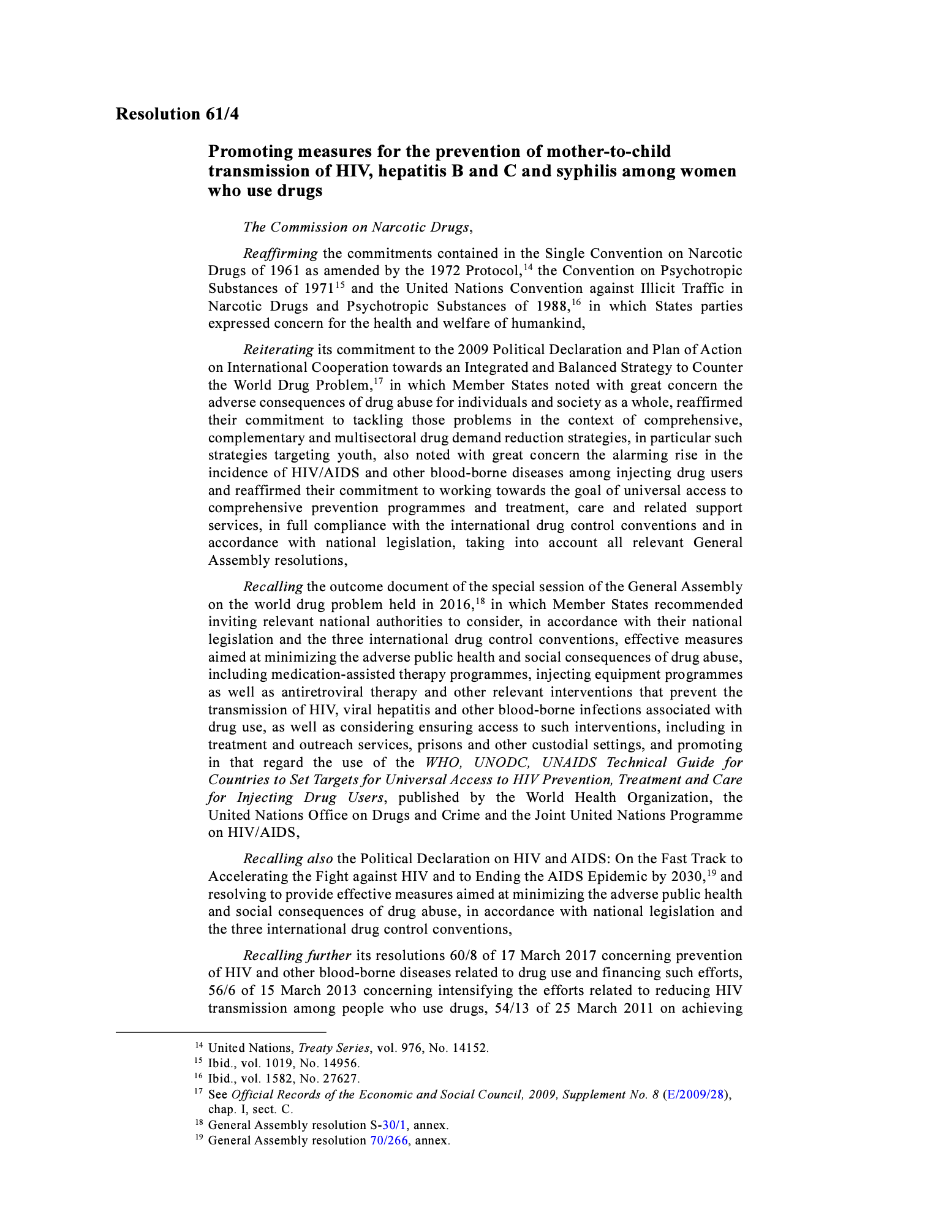2018 CND On mother-to-child transmission among women who use drugs
Analysis of precedential value
The UN Commission on Narcotic Drugs (CND) sets policies for the United Nations Office on Drugs and Crime, which in turn is responsible for monitoring international drug treaties. CND is also overseen by and works closely with the Economic and Social Council and the General Assembly. It is composed of representatives from 53 geographically diverse Member States elected by the Economic and Social Council.
Representatives from 11 UN Member States had co-drafted it, but negotiations behind this CND Resolution were reportedly slowed by debates around the use of the terms “drug use” and “drug abuse.”
Used as precedent
harm reduction
“Encourages Member States, as appropriate, within their national and regional contexts, to promote, among relevant agencies and social services sectors, non-stigmatizing attitudes in the development and implementation of scientific evidence-based policies related to the availability of, access to and delivery of health, care and social services for drug users, including women and girls who use drugs or who are exposed to risk factors associated with drug use, and to reduce any possible discrimination, exclusion or prejudice that these people may encounter.” (paragraph 2)
“Requests Member States, as appropriate, within their national and regional contexts, to continue to enhance inclusiveness in developing relevant programmes and strategies, to seek opinions and contributions from women and girls who use drugs and from organizations and families and community members who work with them and support them, and to facilitate development of scientific evidence-based policies regarding the availability of, access to and delivery of services to women and girls who use drugs.” (paragraph 3)
harm reduction, key and vulnerable populations
“Further calls upon Member States to offer women who use drugs, especially those who have recently shared injecting equipment, and/or have been sexually assaulted, access to health clinics and, where possible, assisted referral, and access to post-exposure prophylaxis, in accordance with national legislation and taking into account the United Nations Office on Drugs and Crime guidelines in the publication Addressing the Specific Needs of Women who Inject Drugs: Practical Guide for Service Providers on Gender-Responsive HIV Services.” (paragraph 8)
key and vulnerable populations
“Calls upon Member States to develop and implement strategies to help identify and respond to gender-based violence by providing direct support to women who use drugs or are exposed to risk factors associated with drug use and who experience sexual violence, including appropriate measures and protections as may be required to enable women who use drugs to report abuse.” (paragraph 9)
